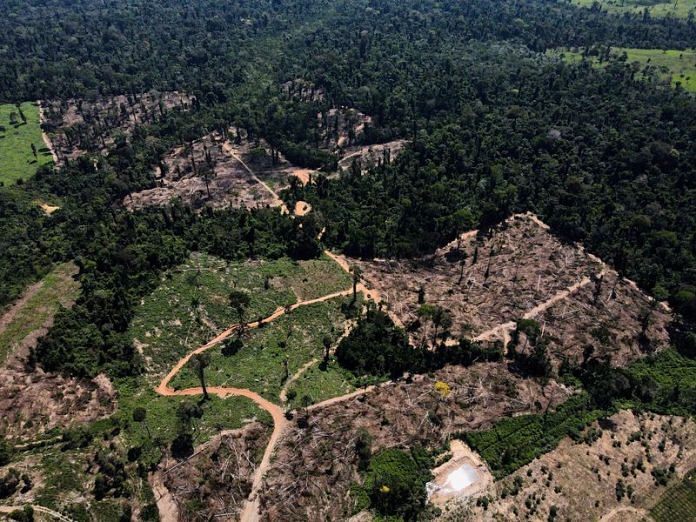By Ana Mano
SAO PAULO (Reuters) – Brazil is raising more cattle on smaller areas, helping to make beef production more sustainable in the world’s largest exporter of the commodity, but supply chain risks remain as criminals continue to clear the Amazon rainforest to graze livestock, beef lobby Abiec said.
According to Abiec’s sustainability director Fernando Sampaio, this is the beef industry’s “Achilles heel” as consumer markets are demanding that major food producers like Brazil clean up their supply chains and track raw-material origins in the name of stopping climate change.
Most deforestation to raise cattle occurs illegally on public property, Sampaio said.
“We are not producing more or exporting more because deforestation is increasing,” he said. “We are neither producing less or exporting less because it is decreasing. There is no correlation.”
“(The Amazon) should be a heritage of all Brazilians, but there are smart people who end up going there and appropriating it privately. The first thing people do is putting a cow there to hold that land,” Sampaio said.
The Amazon has 60 million hectares (148.2 million acres) of non-allocated public areas, Sampaio said.
He cited conservation units and indigenous lands, as well as settlements and unused public plots as land grabbers’ preferential targets in the area.
Sampaio said illegal deforestation is detrimental to Brazil’s image abroad and can cause markets to shut it out, citing efforts by countries, including China, to change consumer habits, fight climate change and develop their own regulated carbon markets.
“Brazil is being beaten up because of this. The entire industry is being beat up because of this,” he said. “Illegal deforestation ends up contaminating our supply chain.”
(Reporting by Ana Mano; Editing by Mark Porter and Richard Chang)
Disclaimer: This report is auto generated from the Reuters news service. ThePrint holds no responsibilty for its content.





